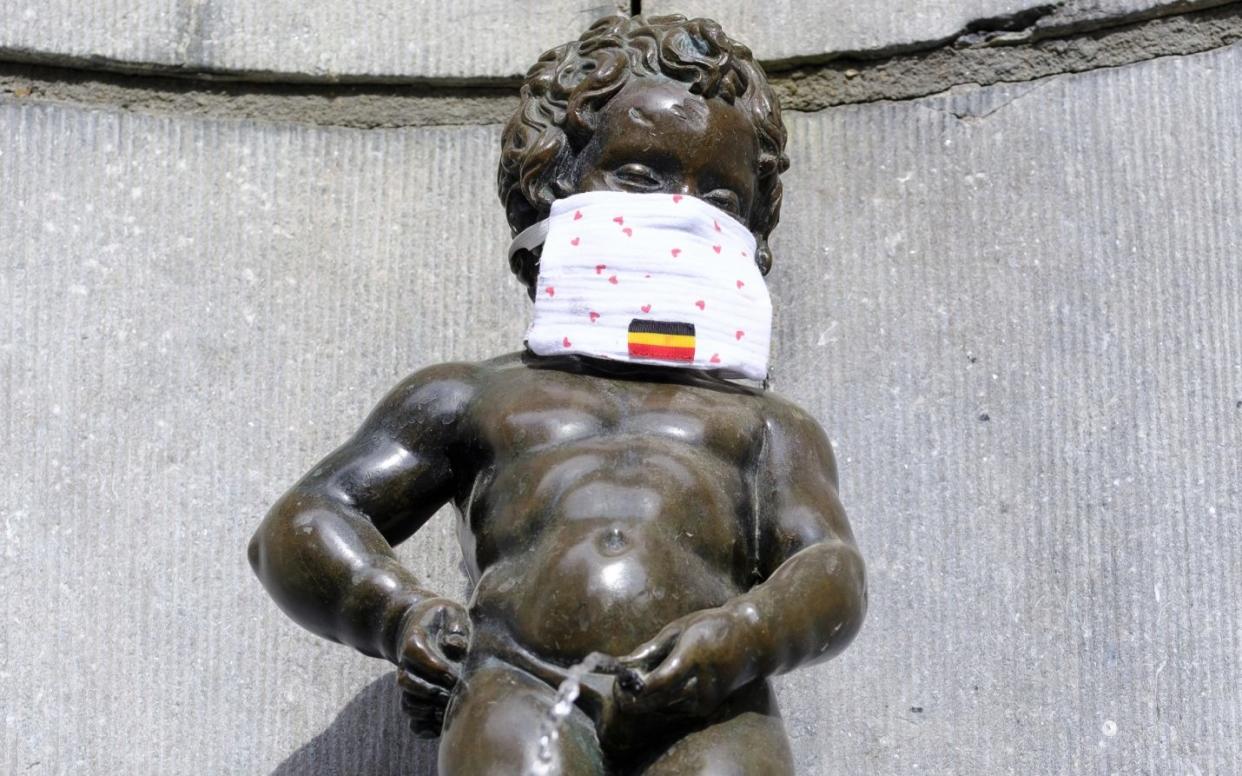Brussels closes cafes as Belgium announces 'rule of four' to combat coronavirus

Brussels' cafes and bars will close for a month, it was announced on Wednesday after Belgium said it would introduce a nationwide "rule of four" to curb rising coronavirus infections.
There was a 57 per cent increase in infections from September 27 to October 3 with an average of 87 people being hospitalised every day in Belgium. 2,466 people a day tested positive for Covid-19 over the past week.
Brussels has the highest number of infections in Belgium and the second highest in Europe, with fewer cases than Madrid but more than in Paris.
The capitol’s mayors decided to impose stricter restrictions than elsewhere in Belgium. They closed all cafes and bars in the city for a month from 7am on Thursday. Drinking in public places is banned, but restaurants can remain open.
Nationwide restrictions announced on Tuesday ordered bars and cafes to close early at 11pm.
“The objective was to have the clearest possible measures,” said Rudi Vervoort, the minister-president of Brussels after the meeting of local leaders.
The Belgian government said social bubbles would shrink from five to four as it set out month-long stricter restrictions from Friday.
Meetings outside are limited to four people, gatherings at home are limited to four visitors, and customers in cafes are limited to four per table, unless they all live together.
Alexander De Croo, the prime minister, said, “We can see that the spread of the virus is accelerating considerably. We need to stop that acceleration as soon as possible.”
Belgium has appointed Pedro Facon as its first coronavirus commissioner in an effort to pull together its splintered health policies across the three federal regions of bilingual Brussels, Dutch-speaking Flanders and French-speaking Wallonia.
The entire regional government of Wallonia announced it was going into quarantine on Wednesday after the minister of tourism tested positive.
An 11pm curfew for restaurants, pubs and shops and a night-time “rule of five” were imposed in the German capital Berlin, amid concern at rising coronavirus infections.
A new limit of five will be imposed on all outdoor gatherings between 11pm and 6am, but will not apply indoors. Pharmacies and petrol stations will be exempt but will not be allowed to sell alcohol.
Berlin has one of the highest weekly infection rates in Germany, with 40.5 new cases per 100,000 inhabitants, compared to just 17.8 nationwide.
Up to 50 people will still be allowed to gather outdoors by day, while indoor gatherings will be limited to 10 day and night.
“I ask everyone to consider what the situation would be if we do not act decisively,” Michael Müller, the mayor of Berlin, said.
“Sooner or later we would get into a situation where we would be forced to take much tougher measures such as a lockdown.”
The rate has crossed the German traffic light system’s red level of 50 in four Berlin districts, including the city centre and the popular nightlife neighbourhoods of Kreuzberg and Neukölln.
The worst affected city in Germany is Hamm, near Dortmund, where the rate has crossed 100 in recent days.
Restrictions are decided at a regional level in Germany, and vary considerably around the country.
A 10pm curfew on restaurants and pubs and a ban on consuming alcohol in the street are to be imposed in Frankfurt, but in most other major cities there are few restrictions.

